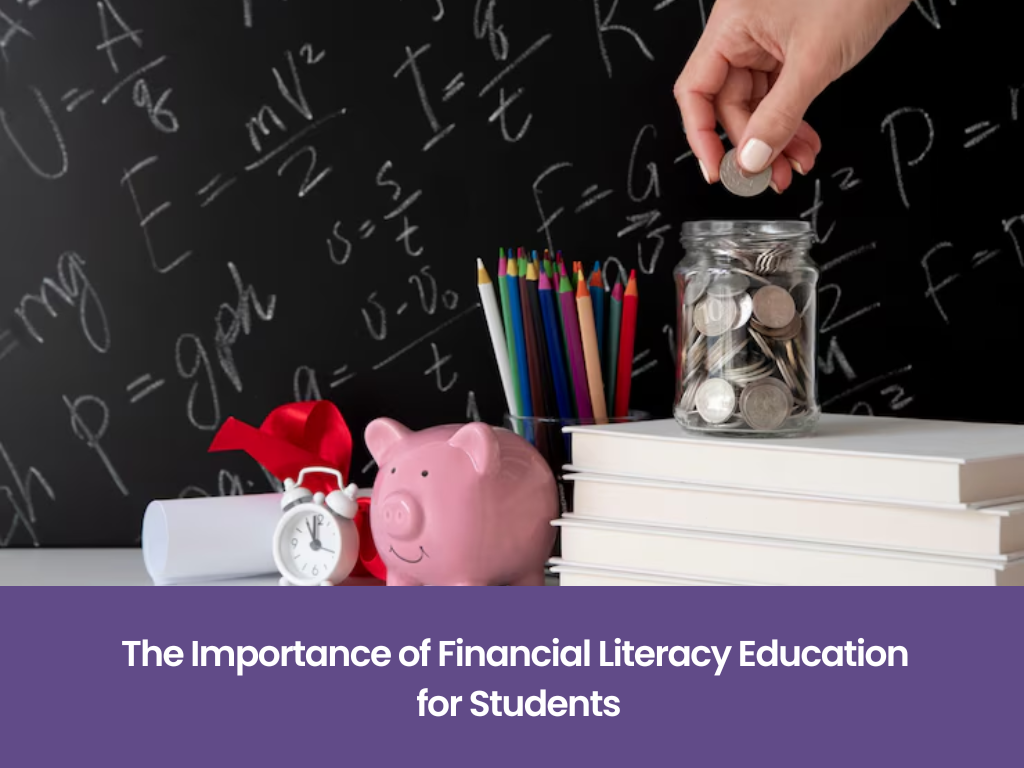The Importance of Financial Literacy Education for Students
posted on Mar 25, 2025
Learn why financial literacy education is crucial for students to build financial independence and stability

Introduction
In today’s fast-paced and ever-evolving world, financial literacy has become an essential life skill. Unfortunately, many young people leave school without the fundamental knowledge needed to manage money effectively. As a result, they often struggle with budgeting, saving, and making informed financial decisions later in life. By incorporating financial literacy education into the school curriculum, we can empower students to build a secure and stable financial future. BGS Vijnatham School, one of the best schools in Greater Noida West, is committed to holistic education and skill development.
Understanding Financial Literacy
Financial literacy refers to the ability to understand and manage personal finances. It includes skills such as budgeting, saving, investing, managing debt, and understanding financial products like loans and credit cards. Building these skills early on can help students make sound financial decisions, avoid debt traps, and achieve financial independence.
One of the biggest challenges today is that many young adults lack the necessary skills to manage their finances. According to a recent survey, nearly half of adults regret not learning about personal finance earlier in life. This gap in knowledge can lead to poor financial choices, affecting long-term stability and well-being. Furthermore, the consequences of financial illiteracy can ripple through society, resulting in increased debt burdens and decreased economic mobility.
Why Financial Literacy Matters for Students
There are several reasons why financial literacy education is crucial for students:
- Prepares for Real-Life Financial Challenges
- Understanding how to budget and save from an early age equips students to handle financial responsibilities when they transition into adulthood. Whether it’s managing student loans, paying rent, or handling daily expenses, these skills are invaluable. Additionally, early exposure to financial concepts helps students develop a proactive approach to managing money, reducing the likelihood of financial stress in the future.
- Reduces Financial Stress
- Financial stress is a common problem among young adults. By teaching students how to manage money wisely, they can reduce anxiety and feel more confident about their financial future. Stress related to financial instability can negatively impact mental and physical health, making financial education an essential component of well-being.
- Encourages Responsible Spending and Saving Habits
- Educating students on the importance of saving money and making mindful spending choices helps them develop habits that will benefit them throughout their lives. This knowledge also empowers students to set financial goals, create savings plans, and practice disciplined spending, fostering a culture of financial responsibility.
- Fosters Economic Stability and Independence
- A strong foundation in financial literacy helps individuals build economic stability, reducing reliance on credit and minimizing the risk of debt. Financially literate individuals are more likely to build emergency funds and invest in long-term assets, promoting economic resilience and security.
Real-Life Examples of Financial Literacy Success
There are countless examples of how financial literacy positively impacts individuals and communities. One success story involves a group of high school students who, after completing a financial literacy course, successfully developed a community budgeting initiative. They educated local families on effective money management, leading to reduced debt and increased savings for many participants. Stories like these highlight the transformative power of financial education.
Integrating Financial Literacy into School Curriculum
To ensure that students acquire essential financial skills, schools should integrate financial literacy into their curricula. This can be done through:
- Interactive Workshops: Hosting sessions on budgeting, saving, and investing.
- Guest Lectures: Inviting financial experts to share real-world experiences and advice.
- Project-Based Learning: Assigning tasks that involve creating budgets or investment plans.
- Financial Simulations: Engaging students in real-world financial scenarios to practice decision-making skills.
The Long-Term Benefits
Financial literacy not only helps students manage their finances but also promotes a healthier economy. When young people are financially responsible, they contribute positively to the community and are less likely to fall into debt traps. Moreover, equipping students with financial skills from a young age reduces the socioeconomic divide by fostering self-sufficiency and independence.
Conclusion
Investing in financial literacy education is an investment in the future. By equipping students with the knowledge and skills needed to manage their finances effectively, we empower them to make informed decisions and lead financially secure lives. BGS Vijnatham School, one of the top schools in Greater Noida West, is continuously striving to provide holistic education that prepares students for real-world challenges. By embedding financial literacy within the curriculum, the school ensures that students are not only academically prepared but also equipped with practical life skills that will benefit them throughout their lives.